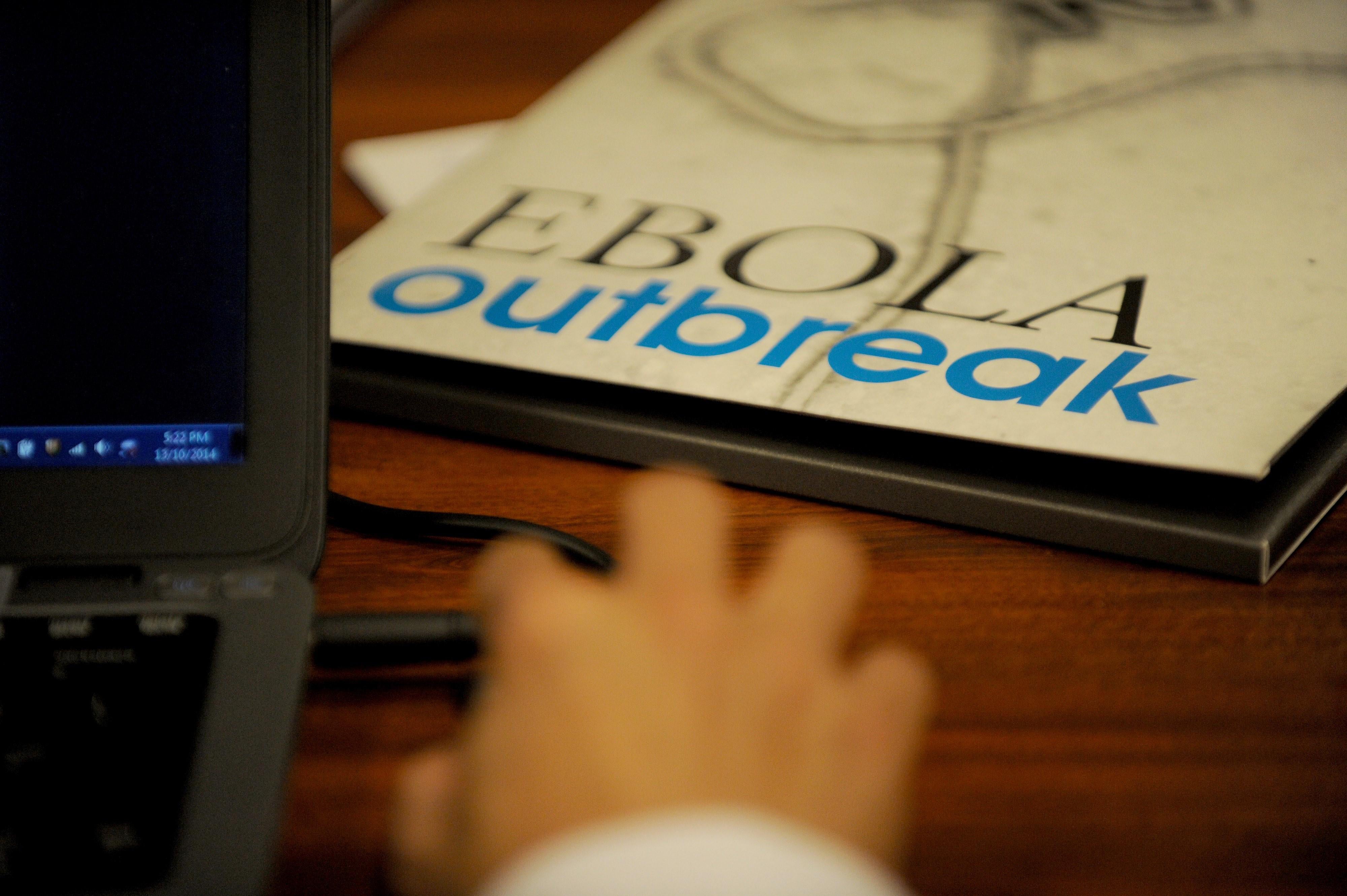You would have hoped for better from an institution of higher learning, but perhaps we should have known better. On Thursday, Pulitzer Prize-winning photographer Michel du Cille was disinvited from a journalism workshop at Syracuse University because he has recently returned from covering the Ebola crisis in Liberia. The Washington Post photographer arrived back in the U.S. three weeks ago and has shown no symptoms of the virus, according to the National Press Photographers Association.
“Since his return from Liberia, Du Cille has been following CDC guidelines and monitoring himself closely for symptoms. He has been taking his temperature at least twice a day (but actually more like on the hour, every hour) for the past 21 days,” the NPPA reports. The decision by the university, and its highly-esteemed journalism program, looks all the more hysterical considering du Cille spent Thursday afternoon photographing CDC director Thomas Frieden on Capitol Hill. On Wednesday, du Cille was at the CDC itself—working. In fact, here are some of the pictures he took for the Post.
Here’s more on just how ludicrous this decision makes Syracuse look:
Just yesterday, du Cille spent all day with Centers for Disease Control director Dr. Thomas Frieden at CDC headquarters in Atlanta, GA… Du Cille said he asked the CDC’s Communications Director Tom Skinner on Tuesday in Atlanta what the CDC did with their scientists and workers when they return to Atlanta from working in Africa with Ebola patients. “He told me that the CDC has them monitor their temperature twice a day, watch for symptoms, and to be alert for 21 days. They don’t ask them to stay away, they don’t quarantine them, nothing like that. They said that if you’re not going to show symptoms between Day 2 and Day 21, then you’re not going to get Ebola.” At the CDC the Washington Post photojournalist also asked one of Dr. Frieden’s physicians, Dr. John Brooks, about the possibility of whether or not he could still be an Ebola carrier if he’s gone this long without showing any symptoms. The accepted incubation period for Ebola is 21 days. While du Cille had been around many bodies of people who died because of Ebola, he says he has no reason to believe that he had actually been exposed to the virus. “Dr. Brooks told me, and I quote, that since my 21 days are up it is very, very unlikely that anyone could get Ebola from me.”
Du Cille’s Pulitzer Prize-winning wife, Nikki Kahn, who is also a photojournalist and scheduled to attend, was also uninvited.
